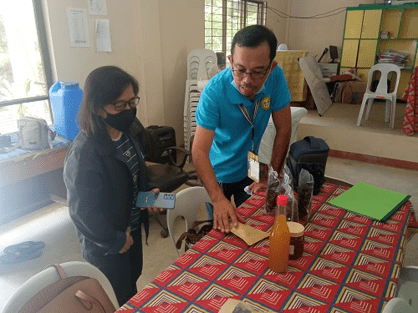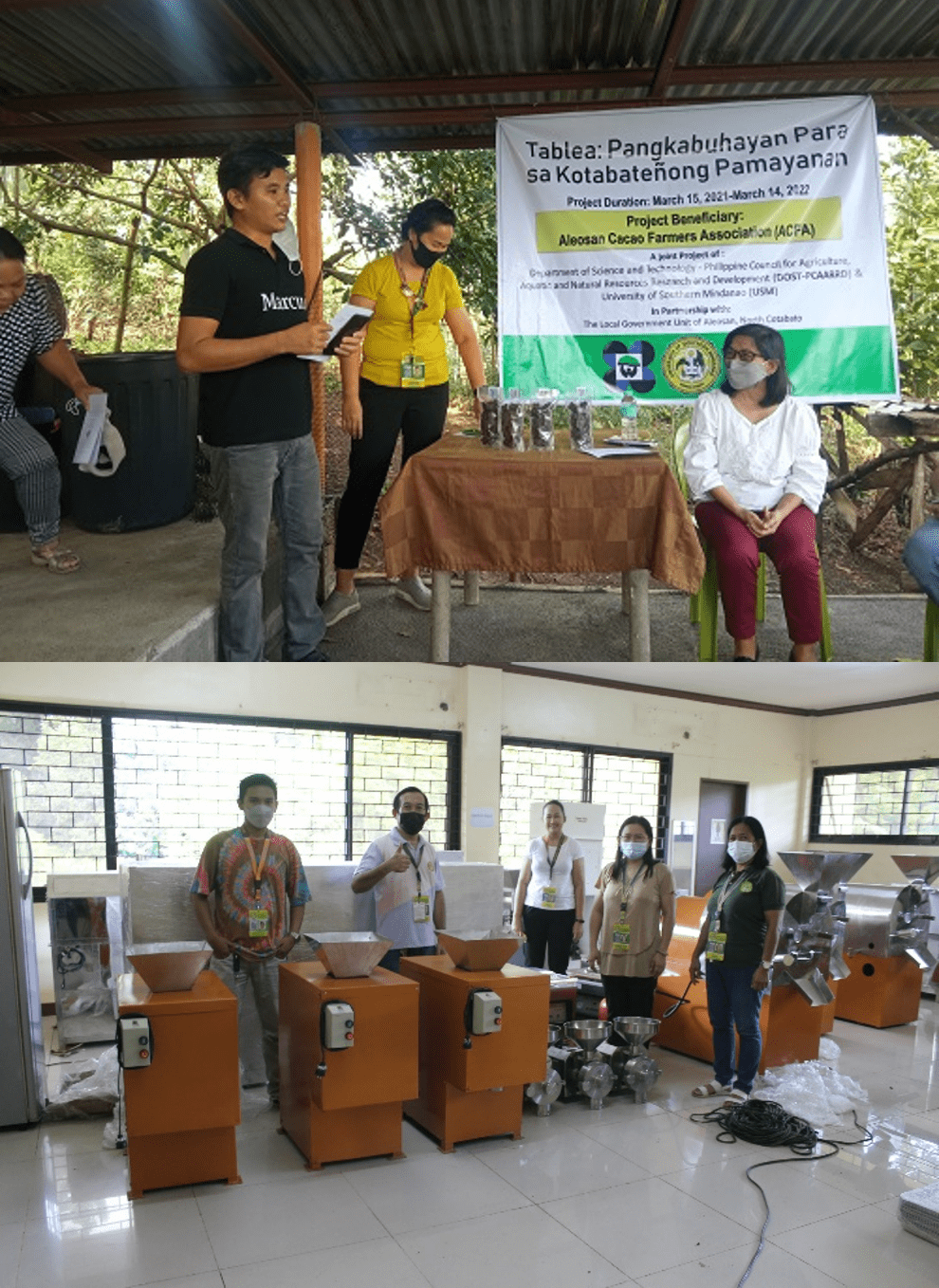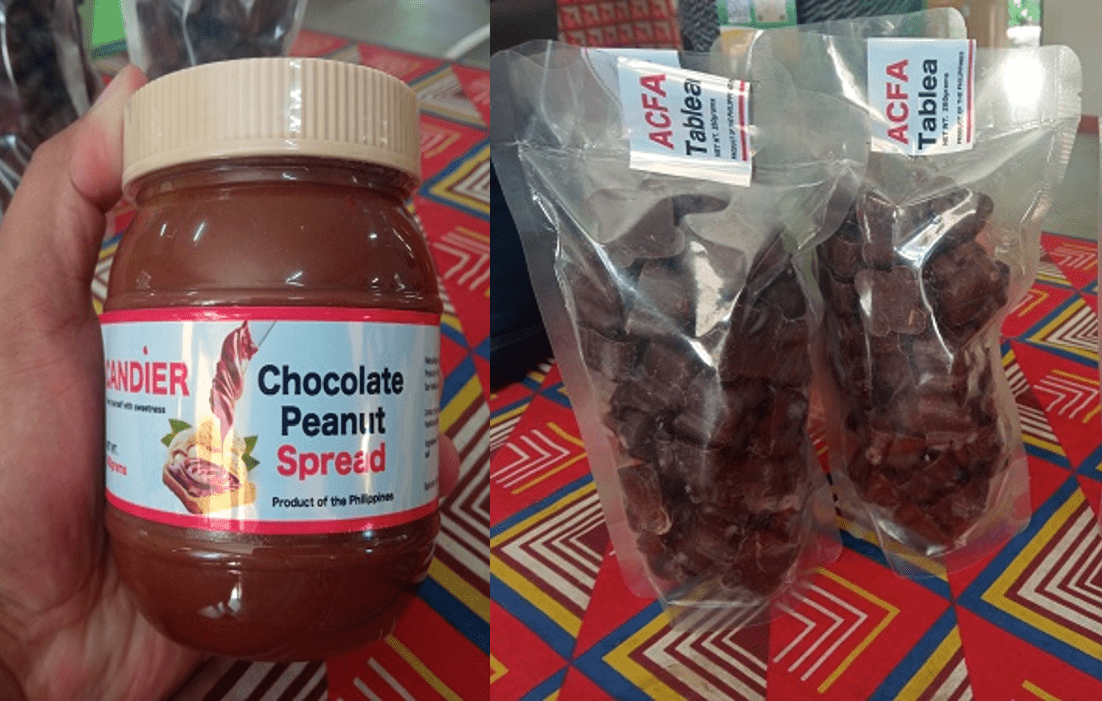
Cacao farmers and displaced workers in cacao-growing communities in the municipalities of Aleosan, Antipas, and Tulunan in North Cotabato were assisted by a project funded by the Philippine Council for Agriculture, Aquatic and Natural Resources Research and Development of the Department of Science and Technology (DOST-PCAARRD).
The project, “Community-based 'Tablea' Production for Sustainable Livelihood in Cotabato,” addresses income loss of cacao farmers in Cotabato due to the effects of the COVID-19 pandemic. It is being implemented by the University of Southern Mindanao (USM) and is part of the Good Agri-Aqua Livelihood Initiatives towards National Goals (GALING)-PCAARRD Kontra COVID-19 program of the Council.
Through the project, various equipment such as, roasting machine, sheller with winnower, cacao grinder, and vacuum sealer were provided to help cacao farmers/growers in processing their cacao beans.

According to the cacao farmers, the equipment provided helped improve the processing time of dry cacao beans from three days to four hours of roasting and from four hours to only a minute of shelling. Also, lesser time used and finer quality were produced during grinding. They were able to produce the finished products in one day instead of the usual three days, with 50-kg dry cacao beans, as basis.
The USM team also designed and developed training modules on cacao pre-processing and post-harvest treatment and storage, USM tablea production, tablea packaging and labelling, tablea marketing, enterprise budget for tablea, and operational and sustainability plan as a guide for capacitating the farmers’ association.
Marcus C. Candidier, President of Aleosan Cacao Farmers Association (ACFA), also shared that this project increased their income and members were capacitated in tablea production despite pandemic.
Different products produced by the different farmers’ association were showcased during the site visit. They are able to produce quality tablea, chocolate bars, chocolate peanut spreads, and cacao ciders.

Collaboration with different government agencies is needed to further improve cacao products in terms of packaging, labeling and marketing. Project sustainability is also prioritized to make sure that the pieces of equipment are protected and well-maintained.
These accomplishments were presented during the monitoring visit of the DOST-PCAARRD headed by the Forestry and Environment Research Division (FERD) led by For. Faustina C. Baradas, FERD officer-in-charge, together with For. Cer Jay B. Jimenez, Industry Strategic S&T Program (ISP) manager for Cacao. They were accompanied by Dr. Ardniel A. Baladjay, project leader, and his research team from USM.
